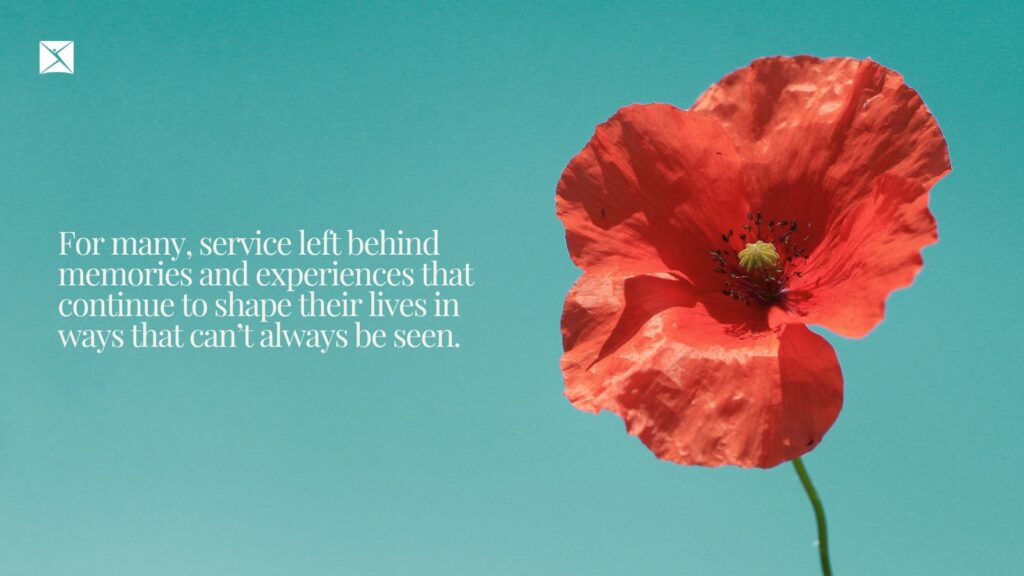Menu
Close

Beyond remembrance: supporting veterans’ mental health on every front
Nov 11, 2024
Every year on Nov. 11, Canadians pause for Remembrance Day to honour the bravery, dedication and sacrifices made by veterans. But as we reflect on the courage displayed on the battlefield, we must also consider the quieter battles that many veterans continue to face after their service ends.
For some, trauma experienced in service translates to enduring mental health challenges such as post-traumatic stress disorder (PTSD), anxiety, depression and substance use. These unseen struggles are part of their journey and require our collective understanding and support.
Why PTSD matters
For many veterans, the impact of military service is complex. While some return from service with minimal challenges, others carry lasting effects that profoundly shape their lives. PTSD—a condition triggered by witnessing or experiencing traumatic events—often leads to symptoms like flashbacks, nightmares and hyper-vigilance. These aren’t just fleeting responses but often deeply rooted emotional and psychological experiences that disrupt daily life.
Imagine carrying memories of combat, loss or injury that resurface without warning, casting a shadow on seemingly simple activities. This is what PTSD can feel like: an ongoing presence, a reminder of trauma that can affect relationships, work and even self-worth.
More than resilience: recognizing veterans’ needs
As a society, we often celebrate resilience, particularly in veterans. We admire the bravery and stoicism that define their service. However, it’s essential to create space for veterans to express a broader range of emotions and needs. Veterans are more than the roles they once held; they are individuals with unique stories, and some may need specialized mental health support to help them thrive after service.
The stigma surrounding mental health, especially among military personnel, can be a barrier to seeking help. Veterans may feel pressure to “tough it out,” fearing that reaching out for support could be seen as a sign of weakness. But we know that asking for help requires incredible strength. This Remembrance Day, we can honour veterans by helping to break down these barriers and advocating for mental health support as a critical aspect of veteran care.
How we can support veterans’ mental health
Supporting veterans goes beyond expressing gratitude. Here are a few meaningful ways we can all make a difference:
- Foster open, honest conversations
- It’s essential for veterans to feel safe sharing their mental health experiences without judgment. Encourage open dialogue and listen with empathy. Just as we honour their stories of courage, we should be equally open to hearing about their challenges.
- Educate ourselves about PTSD and mental health
- Understanding what PTSD, depression and anxiety look like can help reduce stigma. When we’re educated, we’re better equipped to offer genuine support and understanding.
- Connect veterans to supportive resources
- Make sure veterans in your life know that support is available, whether through peer groups, counselling or specialized programs tailored to veterans’ mental health needs.
- Create a supportive work environment
- For veterans returning to civilian life, the workplace can be a significant area of transition. Employers can provide support by offering mental health resources, being open to flexible schedules and encouraging a culture that values mental well-being.
If you or a loved one needs support, CMHA-WECB is here to help. Let’s walk this path together.